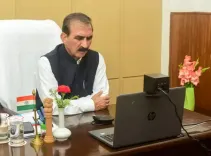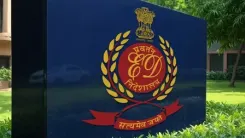Are E-commerce Firms Complicit in Terror Funding as per FATF Report?

Synopsis
Key Takeaways
- FATF's findings link e-commerce to terror financing.
- CAIT calls for accountability from online platforms.
- Need for stronger regulations and oversight.
- Impact on local traders and consumer safety.
- Urgent action required to protect national interests.
New Delhi, July 9 (NationPress) The Confederation of All India Traders (CAIT) has intensified its criticism of e-commerce platforms, following the revelations from the global watchdog FATF that indicate chemicals used in explosive attacks by certain terrorist groups in India were procured through online trading sites.
“The latest findings in the FATF report have revealed a concerning misuse of digital platforms and payment applications for financing terrorism, which significantly threatens national security. It is profoundly troubling that these online channels, designed for convenience and innovation, are being leveraged for activities that jeopardize our country,” stated Delhi’s Chandni Chowk MP & Secretary General of Confederation of All India Traders (CAIT) in a statement released on Wednesday.
“E-commerce platforms must be held accountable. How can they continue to evade their responsibilities?” Khandelwal remarked.
He also expressed concern that the Bureau of Indian Standards (BIS) recently conducted raids on Amazon warehouses, revealing significant amounts of counterfeit and substandard merchandise, raising critical questions about the regulatory compliance and consumer safety measures adopted by major e-commerce firms.
Khandelwal contended that these occurrences are not mere isolated incidents; rather, they signify a pervasive and systemic threat to India’s retail sector and consumer well-being. The unregulated and unethical practices of e-commerce giants are not only jeopardizing the livelihoods of local small traders but also eroding the legal and economic accountability framework.
He emphasized the urgent need for decisive action against these e-commerce platforms. Khandelwal proposed the rigorous enforcement of the Consumer Protection Act against offenders, the prompt introduction of a comprehensive e-commerce policy that guarantees transparency, accountability, and equitable competition. He also advocated for stringent oversight of digital payment systems to avert misuse for illicit purposes and the establishment of an independent regulatory body to oversee and monitor e-commerce activities in India.
Khandelwal asserted that the nation's economy, traders, and consumers cannot be subjected to the reckless actions of unregulated online platforms. Immediate intervention is essential to safeguard India’s trade sovereignty and ensure that digital commerce remains secure, safe, and ethical.









